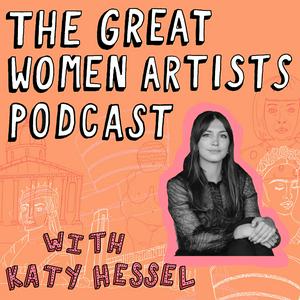Lois Dodd
I am so excited to say that my guest on the GWA Podcast is the esteemed American painter, Lois Dodd.
At 98-years-old, Dodd is famed for her paintings of her immediate surroundings, from landscapes to house roofs, windows and stairs. She paints the Night, day; outside, inside; doors that are painted, chipped; new, worn; and loved. While there is a seemingly absence of people, Dodd’s paintings capture whole worlds and narratives – whether it be hose fires, or laundry hanging from a washing line. It’s as though the colour, weather, light, frames, stairs, or cracks retain years worth of stories and memories, or are even characters in themselves. Steeped in American art and cultural history, referencing the likes of Hopper or Hitchcock, Dodd’s works emphasise a voyeuristic, but also familiar nature.
Born in 1927, Dodd was born and raised in New Jersey, mostly by her three older sisters after her parents’ untimely death when she was young. It was then to Cooper Union in the 1940s, where she was amongst the burgeoning New York art scene, opening the artist-run space, the Tanager Gallery in 1952, at a similar time to iconic exhibitions such as the Ninth Street Show.
Venturing to Maine, living by her artist friends Alex Katz and Jean Cohen, she took to painting views of the landscape, and by the end of the 1960s, this was now framed through a window: a perspective and device she has constantly reworked and reinvented, whether it be pressed up against her window on the Bowery, looking out onto her New York view, or of the cracked windows set in the lush, verdant countryside. Dodd allows her viewer to see something we thought we knew so well. She is an observer of nature – her works are about seeing the things that pass others by. As the critic Roberta Smith wrote in 2013: “Ms. Dodd loves the observed world. [...] She always searches out the underlying geometry but also the underlying life, and the sheer strangeness of it all.”
I would also add that she is acute at highlighting the things that others iss - take her window portraits of New York City, a favorite being one fro November 2016, of her view that although is taken p by windows, places emphasis on a golden tree or blue sky, as if to latch on to the nature that grows even in the city, and the hope and beauty that exists even in the most unexpected places…
Today we are recording in Dodd’s home/studio in New Jersey… ahead of her major exhibition at Kunstmuseum Den Haag that opens this August in The Netherlands… Being here, I feel set in a Lois Dodd painting, brought to life by the motifs that surround me – and I can’t wait to find out more.
https://www.kunstmuseum.nl/en/exhibitions/lois-dodd
https://www.alexandregallery.com/artists-work/lois-dodd#tab:slideshow;tab-1:thumbnails
--
THIS EPISODE IS GENEROUSLY SUPPORTED BY THE LEVETT COLLECTION:
https://www.famm.com/en/
https://www.instagram.com/famm_mougins // https://www.merrellpublishers.com/9781858947037
Follow us:
Katy Hessel: @thegreatwomenartists / @katy.hessel
Sound editing by Mikaela Carmichael
Technical support: Viva Ruggi
Music by Ben Wetherfield
